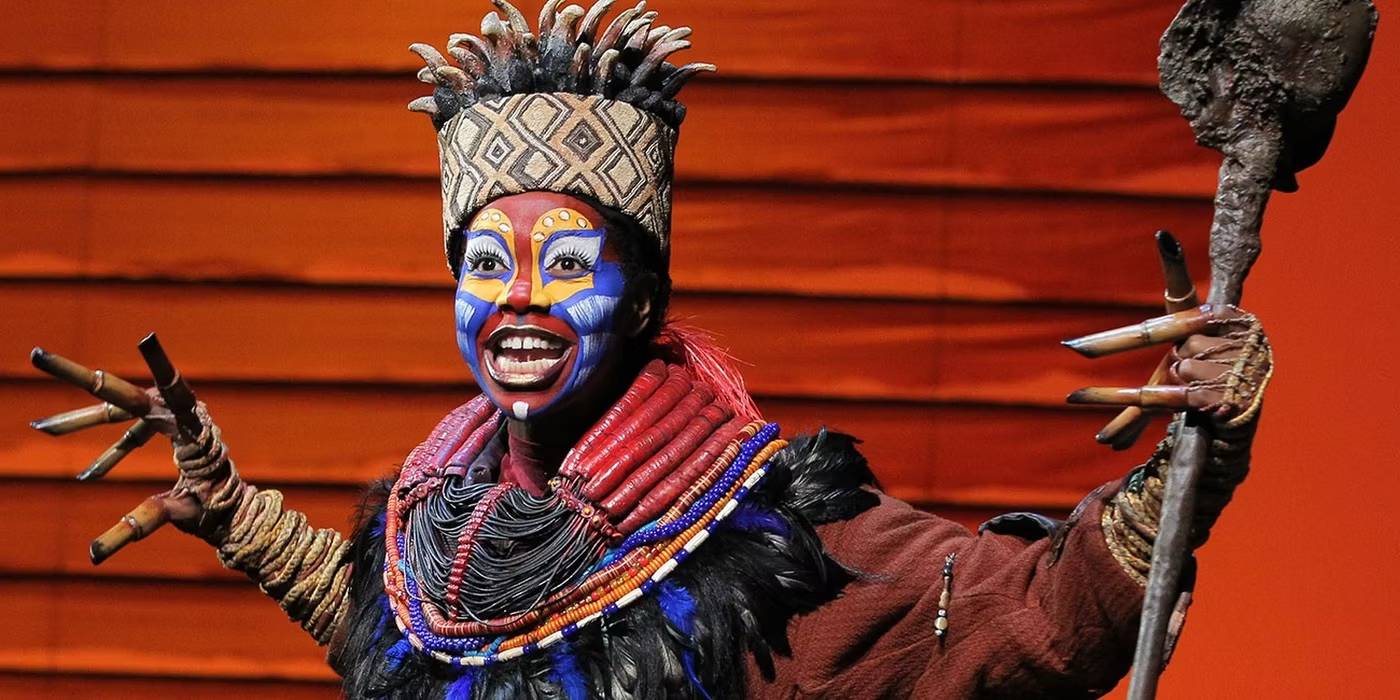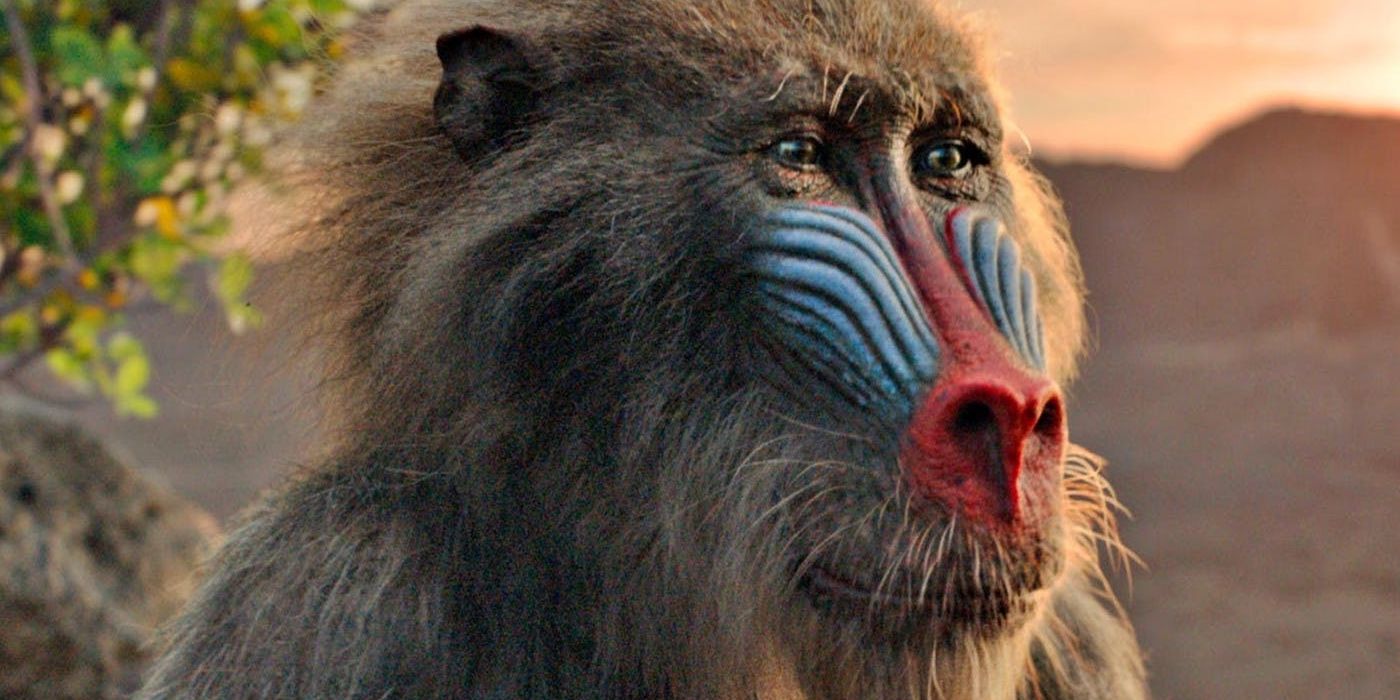Rafiki's Language & More: Unveiling Secrets Of The Lion King Character!
Apr 24 2025
Does the mystical baboon Rafiki, with his cryptic pronouncements and vibrant presence, truly hold the key to understanding the circle of life? His influence extends far beyond the animated screen, impacting the hearts and minds of audiences with his wisdom and enigmatic charm.
Rafiki, the enigmatic mandrill from Disney's "The Lion King," has captivated audiences for decades. More than just a character, he embodies the spirit of the wise elder, the shaman, the mystical guide. His role in the narrative is pivotal, serving as a bridge between the physical and spiritual realms within the Pride Lands. It is in that capacity that he presents newborn Simba to the animal kingdom, setting in motion the events that will define the future of the kingdom.
Born from the minds of the creative team behind the film, Rafiki was originally conceived as a male character, voiced by the talented Robert Guillaume. However, the evolution of the character did not stop with the initial animation. The Broadway musical adaptation saw Rafiki portrayed by a woman, reflecting the director Julie Taymor's desire for a stronger female presence in the story. This shift in perspective brought about new nuances to the character, offering a fresh interpretation of the shamanistic figure. It is noteworthy that Rafiki's voice, as delivered by Guillaume, was partly shaped by a failed attempt at a Jamaican accent. This creative choice, while ultimately leading to a distinct vocal quality, also hinted at the character's roots in a culture rich with spiritual and artistic traditions.
| Attribute | Details |
|---|---|
| Full Name | Rafiki |
| Species | Mandrill (with physical features of Hamadryas Baboons) |
| Role | Royal Mjuzi of the Pride Lands; Shamanistic Figure |
| First Appearance | Disney's "The Lion King" (1994) |
| Key Relationships | King Mufasa (Friend), Simba (Protege) |
| Distinctive Features | Wise, eccentric personality; uses a bakora stick; distinctive laugh. |
| Voice Actors (Film) | Robert Guillaume |
| Portrayals (Musical) | (Female actors) |
| Languages Spoken | Swahili (Notably in the song "Asante Sana"), English (Likely influenced by Swahili and the accents of those who portray him) |
| Significant Moments | Presenting Simba at Pride Rock; Guiding Simba after Mufasa's death; mentoring Simba. |
| Origin | The Pride Lands, though it is revealed in a storybook that Rafiki was a traveler, studying the African Lands, prior to taking up residence in the Pride Lands. |
| Cultural Influence | His character embodies African spirituality and wisdom, offering life lessons on the circle of life, acceptance, and the importance of remembering the past. |
| Notable Quotes | "It is written"; "The past can hurt. But the way I see it, you can either run from it, or... learn from it."; "Asante sana, squash banana, we we nugu, mi mi apana." |
The song that Rafiki sings to himself, "Asante Sana, Squash Banana, We We Nugu, Mi Mi Apana," is a delightful example of how language and culture intertwine in the film. The lyrics, primarily in Swahili, translate to "Thank you very much, squash banana, you are a baboon and I am not." This humorous and self-deprecating melody provides not only comic relief but also provides a glimpse into the unique personality of the character. It reminds the audience of the cultural richness of the film's setting, even when communicating profound truths.
In the story, Rafiki's connection to King Mufasa is an important element of his character. Their bond highlights the significance of friendship and the wisdom that comes with age. Rafiki's role in presenting Simba to the Pride Lands represents the character's role as a trusted advisor and spiritual guide. His relationship with the royal family reinforces the idea of a leader who is both wise and trusted.
The influence of Jamaican culture on Rafiki's creation is also evident. The fact that the voice of Rafiki was inspired by a failed attempt at a Jamaican accent shows that there are cultural influences that run deep. The vibrant energy, rhythm, and expressive spirit of Jamaican dance, a cornerstone of Jamaican culture, further enhances the character's presence. This creative touch, along with the spiritual aspects of Rafikis character, provides a richer dimension.
In contrast to his film counterpart, the musical adaptation made some notable changes to Rafiki. In order to address the lack of powerful female characters in the overarching story, director Julie Taymor cast a woman in the role. This transformed Rafiki into a female mandrill. This artistic decision did not diminish the character's significance. Instead, the change provided a fresh perspective on the character's spiritual and leadership qualities. This is an excellent example of how the adaptation of character can provide a different lens on a story.
The Pride Lands, the setting for "The Lion King," has a rich tapestry of life and spiritual forces. Rafiki's travels are documented in the storybook "A Tale of Two Brothers." Rafiki travels across the African lands before becoming a resident of the Pride Lands. This journey underscores his role as a bridge between the physical world and the spiritual realm. The character is regarded as a shaman within the Pride Lands as a result of this journey.
The impact of Rafiki transcends the animated screen. He is a reminder of the wisdom present in the world. He demonstrates that strength can be found in embracing the past, and the importance of having faith in the future. He also reminds the audience to have the ability to laugh even during the face of pain. These are all hallmarks of the character that resonates with audiences of all ages.
Rafiki's legacy is not only defined by his cinematic appearances. He continues to be a point of discussion, artwork, and cultural examination. Rafiki's influence on the creative process, including the voice actors, demonstrates the depth that a character can bring to a story. This includes the influence of culture, language, and the desire to present characters with strength and resonance. Rafiki is a symbol of wisdom. It will continue to inspire generations to embrace the journey of life.
The world of "The Lion King" is a vibrant display of the diversity of life. Rafiki's role as a supporting character has been transformed and enriched by the musical adaptation. The character has continued to remain relevant through the themes of community, spirituality, and the acceptance of change. His presence remains a symbol of guidance and hope for generations to come.
The presence of "Rafiki Jamaica" on Facebook, offering the chance for connection and sharing, reflects the character's universal themes of unity and connection. These principles of inclusion, acceptance, and community have remained fundamental to the legacy of Rafiki.
Rafiki embodies the beauty of African spirituality, the strength of friendship, and the importance of embracing the circle of life. His character demonstrates the importance of faith and hope. It is the legacy of the wise old baboon. His message will continue to resonate for generations. His character, which offers wisdom and joy, is a beloved fixture for audiences.
For further insights into the character's development and impact, one can explore the vast resources available online. Here's a link to the official Disney website, which offers in-depth information about the characters and the Lion King franchise: https://www.disney.com/


